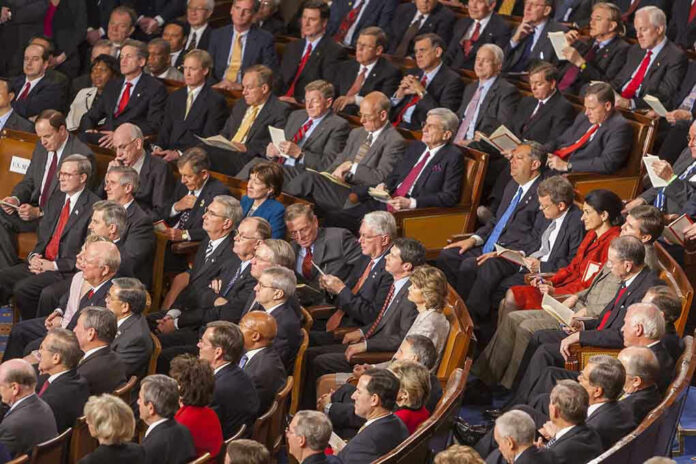A new generation of Democratic elites is scrambling to inherit Jerry Nadler’s Manhattan seat, exposing deep divisions in New York’s political machine and raising alarms about dynastic power at a time when voters demand real accountability.
Story Snapshot
- Nadler’s retirement sets off an intense contest for a safe Democratic seat in Manhattan.
- Potential successors include Clinton and Kennedy heirs, fueling concerns about dynasty politics and progressive agendas.
- Local politicians ally themselves with Nadler’s legacy to secure party backing.
- The outcome will influence district priorities and signal the direction of urban Democratic politics.
Nadler’s Departure Creates a Political Vacuum in Manhattan
Rep. Jerry Nadler’s decision to retire after 34 years in Congress leaves Manhattan’s 12th District without a liberal icon who shaped local and national policy. Nadler’s exit immediately triggered speculation and strategic maneuvering among ambitious Democrats, from rising stars to the heirs of America’s most prominent political families. The district’s reliably progressive electorate means the Democratic primary will likely decide the next representative, making this contest a focal point for New York’s power brokers. With Nadler’s endorsement potentially decisive, each contender seeks to align with his legacy to gain momentum in an already crowded field.
Assembly Members Micah Lasher and Alex Bores, alongside NYC Council Member Erik Bottcher, quickly positioned themselves as early frontrunners. Lasher, described as “like a son to Jerry,” is seen as the natural inheritor of Nadler’s progressive platform, while Bores and Bottcher publicly praised Nadler’s service and signaled their intent to run. Meanwhile, speculation swirls about whether Clinton or Kennedy heirs will enter the race, underscoring a generational shift and the enduring grip of political dynasties. This dynamic has energized local party organizations, donors, and advocacy groups, all eager to influence the outcome in a district where the primary is the real battleground.
The Rise of Dynastic Politics and Local Ambitions
The contest for Nadler’s successor exemplifies the growing tension between entrenched family influence and new political voices. Prominent Democratic families, such as the Kennedys and Clintons, are weighing bids, reflecting a long tradition of legacy candidates in New York’s most powerful districts. Critics argue that dynastic politics undermine genuine representation and reinforce progressive priorities that often clash with conservative values. While some see the contest as an opportunity for fresh leadership, others worry that it perpetuates the same policies that have led to overspending, government overreach, and disregard for constitutional principles.
Local candidates like Lasher, Bores, and Bottcher focus on continuing Nadler’s progressive legacy, championing policies on mass transit, civil rights, and social programs. Their platforms resonate with Manhattan’s liberal base but raise questions about the impact on fiscal responsibility, family values, and public safety. As donors and party leaders jockey for influence, the race is expected to attract national attention, especially if high-profile dynastic entrants compete against grassroots contenders. The outcome will determine not only the district’s direction but also signal broader trends in the Democratic Party’s approach to urban representation.
Potential Impact on Policy and Power Structures
Nadler’s retirement presents both risks and opportunities for Manhattan’s Upper West Side and the broader New York political landscape. In the short term, the district will witness an intense primary battle, possibly drawing national media and donor interest if dynasty candidates enter. Long-term effects could include shifts in district priorities, changes in federal funding strategies, and a generational transformation in local leadership. The contest may also set precedent for similar succession battles in other safe Democratic districts, influencing national party tactics and urban policy debates.
Clinton and Kennedy heirs weigh in on running for Nadler’s New York seat https://t.co/EkHjH3YlyC
— Fox News Politics (@foxnewspolitics) September 4, 2025
For constituents, the transition presents uncertainties about future representation and policy focus. Progressive agendas, such as increased government spending and social experimentation, may continue if Nadler’s allies prevail. Yet, the influx of new voices could introduce different priorities, including fiscal restraint and enhanced accountability. Political analysts emphasize the race’s significance as a bellwether for progressive policy and the future of Manhattan politics, while some experts caution against the entrenchment of family dynasties that risk sidelining grassroots concerns.
Sources:
Nadler retiring leaves highly anticipated void in Manhattan politics
Nadler’s retirement sets off Democratic scramble for Manhattan seat











